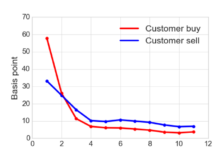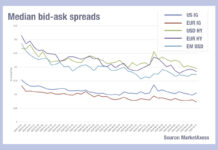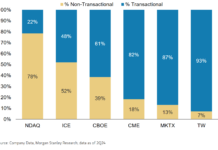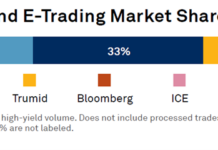The European Commission (EC) has set out a wide ranging process to “stimulate the openness, strength and resilience of the EU’s economic and financial system” as it seeks to increase independence from the US foreign policy as determined by the use of the dollar, and to compete with the overseas financial centres.
Published on 19 January 2021, its three core principles will be to promote the international role of the euro, improve EU financial market infrastructures and improving their resilience including their resilience to third country sanction regimes, and promoting the uniform implementation and enforcement of the EU’s own sanctions.
As part of this, it will also carry out a further review of the revised Market in Financial Instruments directive/regulation (MiFID/MiFIR) in 2021.
“As part of this review, the Commission will propose to improve, simplify and further harmonise the securities markets transparency framework to increase secondary trading in euro-denominated debt instruments,” it wrote. “This will include the design and implementation of a consolidated trading tape, in particular for corporate bond issuances – a central database, which aggregates the various post-trade data sources into a single view. A consolidated tape will ensure that more trading takes place on transparent regulated platforms, thereby increasing market depth and attractiveness of euro-denominated securities both for issuers and investors.”

In September 2020 a report commissioned by the EC into the development of a consolidated tape for fixed income, written by Niki Beattie’s consultancy Market Structure Partners, concluded, “There is an urgent need for CT data to improve the transparency and efficiency of European equity and bond markets. Multiple use cases exist across the industry to show that it would bring considerable benefits to investors who could save billions of euros through the existence of such data. The establishment of CT data could also improve the functioning of European capital markets by increasing competition and supporting policy-making decisions.”
The inclusion of primary bond issuance rather than purely secondary trading pricing appears to move the development beyond some industry proposals which looked at post-trade pricing data.

Valdis Dombrovskis, executive vice-president for an Economy that Works for People at the EC said, “This strategy sets out key ways to do this, notably by boosting global use of the EU’s common currency – the euro. It also looks at ways to reinforce the infrastructure that underpins our financial system and to strive for global leadership in green and digital finance. In shaping a more resilient economy, the EU must also better defend itself against unfair and unlawful practices from elsewhere. When these occur, we should act decisively and forcefully, which is why the credible enforcement of EU sanctions is so important.”
©The DESK 2020
TOP OF PAGE

























